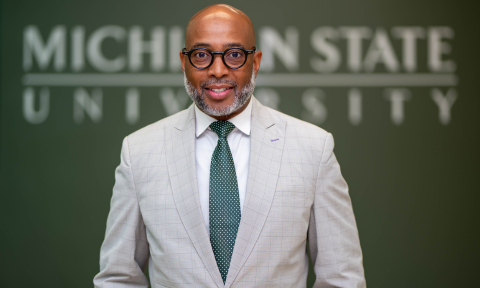Preparing Leaders in Education
The Department of Educational Administration at Michigan State University prepares leaders to meet the needs of learners and make an impact across a wide range of settings, including elementary and secondary (K-12) schools and districts, colleges, universities and other postsecondary environments, and centers and organizations that connect research, policy and practice.
A Dynamic Community
Our graduate program areas are each ranked among the nation’s top 10 and provide outstanding learning experiences within a diverse community of students and faculty members. The department is also home to robust research centers, events and travel opportunities with a focus on urban and global perspectives.
Higher, Adult & Lifelong Education
With one of the largest groups of faculty focused on higher education in the nation, our HALE programs include a certification, two master's programs, a Ph.D. program and an Ed.D. program.
Educational Administration
Our K-12 administration programs offer an emphasis on serving urban schools and communities. The M.A. prioritizes school-level leadership. The Doctor of Education Leadership (Ed.D.) s for working professionals focused on system-level leadership. The full-time Ph.D. is best for future faculty members and researchers.
Education Policy
The doctoral program in Education Policy prepares students to conduct research on urgent issues and provide service to policymakers and communities through roles in local, state, national and international organizations or as faculty members.
Center for Higher and Adult Education
The Center for Higher and Adult Education (CHAE) advances policy and international work in postsecondary education by providing exchange programs, forums and other resources to students and faculty. (Link opens new window.)
Education Policy Innovation Collaborative
The Education Policy Innovation Collaborative (EPIC) is a research center that works closely with state agencies and school districts to study — and improve — education reforms with potential to change students' lives. (Link opens new window.)
University Council for Educational Administration
MSU serves as host for the University Council for Educational Administration (UCEA), a consortium of higher education institutions committed to advancing the preparation and practice of educational leaders for the benefit of schools and children. (Link opens new window.)




